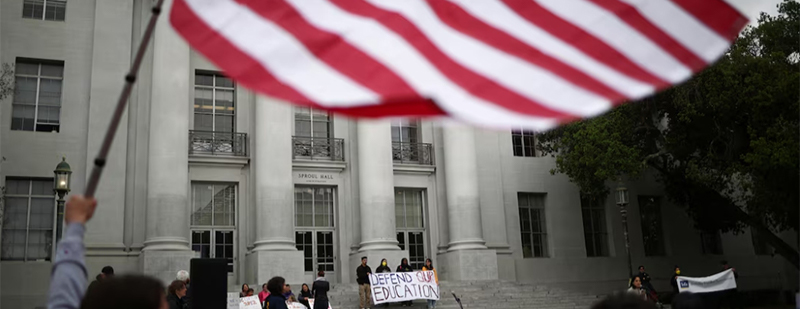-
周波:中美海军频频相遇,如何避免误判?
最后更新: 2021-07-30 09:28:59Rules-based Maritime Order in The New Norm
Zhou Bo
Chancellor of the German Reich Otto von Bismarck famously said, “Laws are like sausages, it is better not to see them being made”. In this regard, the UN Convention on the Law of the Sea (UNCLOS) looks like the longest sausage ever made. It was negotiated for nine years by around 140 countries, making it the longest-running international law negotiation in history. Understandably, compromises are made and ambiguities that could be flexibly interpreted still found.
China, a country that has ratified the UNCLOS as early as 1996 and the US, a country so far hasn’t ratified the UNCLOS have different interpretations of the UNCLO, say, on freedom of navigation and overflight. China believes that American military activities, such as the close-in reconnaissance and surveillance by the US Navy in China’s Exclusive Economic Zone (EEZ), infringe on China’s security interests and therefore cannot be simply categorized as freedom of navigation. The US maintains that its military activities fall within the freedom of navigation and other internationally lawful uses of the sea. But I wish to point out that China is not the only country that holds such a view. At least 25 other countries also have restrictions regarding foreign military activities in their exclusive economic zones or contiguous zones to varying degrees.
Such difference is understandable, but the US, based upon its own interpretations of the UNCLOS, would behave as if it is the sole guardian of the maritime law. According to the Pentagon, from October 1, 2019 to September 30, 2020, U.S. forces operationally challenged “28 different excessive maritime claims made by 19 different claimants throughout the world”. Therefore, a simple question arises: If the Convention is good, why don’t you ratify it? And if it is not, why would you challenge others in the name of it?
China is the only country that has responded militarily to American provocations. There were a deadly aircraft collision in 2001 and a number of dangerous encounters at sea. For over two decades, the Chinese and American navies’ dialogues are useful but not fruitful: the American side wanted technical discussions on how to avoid close and dangerous encounters between ships and aircraft while the Chinese side would point out that American navy’s intense surveillance and reconnaissance in China’s waters were provocations to China’s sovereignty that should be stopped or at least reduced; Americans asked Chinese ships monitoring American ships to keep safe distance and Chinese believe the American ships are most safe if they don’t come at all. It is fair to say that neither China nor the US want an accident. But the fundamental problem exists from the very beginning: if the US doesn’t want the water to boil, why keep throwing wood into the fire? Afterall, it is the American ships that have come regularly to China’s doorsteps and not the other way round.
In theory, it is only a matter of time before the next crisis occurs. Today, risk reduction for Beijing and Washington is more difficult than that between the US and the Soviet Union during the cold war for two reasons. First, there are clearly defined spheres of influence between Washington and Moscow which allows them to avoid direct confrontations even if proxy wars had to be fought elsewhere. But between China and the United States, there isn’t even a buffer zone in the South China Sea or the Taiwan Straits where the American naval vessels sail regularly.
Second, the United States and the Soviet Union were balanced by mutually assured destruction which is not found between Beijing and Washington. But in the Western Pacific, the gap in military strength is shrinking in China’s favor thanks to the advances of the PLA in the past decades. A stronger PLA can only become more determined to safeguard China’s sovereignty and territorial integrity. Of all the reports by American think tanks that I read in the last three years, none of them concludes that within the Western Pacific, the US military is guaranteed to win over the PLA.
If we cannot resolve the problem, we can only try our best to manage a crisis sliding into a confrontation that neither wants. Perhaps there is some light at the end of the tunnel. In October 2020, officials of the Chinese Ministry of National Defense and the US Department of Defense convened the first Crisis Communication Working Group meeting by video teleconference to discuss concepts of crisis communications, crisis prevention and crisis management. This is the first time that crisis is stressed as such because previously talks were centered on avoiding “accidents” or “incidents”. The most significant part is management of crisis, that is, what to do after an accident has happened, a scenario never discussed before.
For China and the US to deconflict at sea, both sides need to observe the multilaterally agreed rules and regulations of the “Code for Unplanned Encounters at Sea” (CUES) made at the Western Pacific Naval Symposium and the bilaterally agreed “Rules of Behavior for Safety of Air and Maritime Encounters” (ROB) to avoid miscalculations. The key to avoid an accident is for ships and aircraft to keep safe distance. But what exactly is the safe distance? According to CUES, seven factors ranging from the state of visibility, the maneuverability of both vessels and understanding of the maneuvering intentions of the other vessel have to be considered in keeping safe distance. Apparently, they require not only serious discussions, but also regular training to ensure good seamanship. The two militaries conducted joint drills on CUES in 2014, 2015 and 2016. Such exercises should continue, partly because a stronger PLA Navy is bound to meet the US Navy more often in the international waters in days to come.
The organizer of the conference asks us to discuss the rules-based order in the new norm. Then what is the new norm? The so-called “free and open Indo-Pacific” is not the new norm, it is a new myth. Ask yourself when the Indo-Pacific is not free and open? Oceans are interconnected. In human history, few countries have attempted to block international straits or sea lanes. The most outstanding problem in the Indo-Pacific was piracy that was rampant in the Gulf of Aden and Somali Basin from 2008 to 2013. Now it is basically eradicated thanks to the joint efforts of the international navies.
The “free and open Indo-Pacific” is in fact thinly-veiled attack on China. It also comes at a cost on the centrality of the ASEAN. The reason is simple, geographically speaking, if ASEAN lies at the heart of the Pacific, it cannot be at the center of the Indo-Pacific at the same time.
It would be interesting to see how the Quad might evolve. If it is based upon a common resentment of China, then the glue that binds the four won’t be strong enough. China is one of the top trading partners of the US and the largest trading partner of Japan, Australia and India. None of them would wish to sacrifice their own economic ties with China for the interests of the other three countries, to say the least.
In the international maritime domain, one of the new norms is that the PLA Navy is getting stronger and stronger. It already has the largest number of ships in the world. It is aiming to grow into a world-class navy by mid-century. At any given time, there are Chinese naval vessels sailing somewhere in the rest of the world.
The question is what this means for the world. Of course, a stronger Chinese navy will play a more important role in safeguarding China’s sovereignty and territorial integrity, but the PLA Navy doesn’t need so many ships for Taiwan issue or the South China Sea issue. It is China’s tremendous and ever-growing overseas interests and international obligations which are incumbent upon a major power that call for China to build a world-class navy. In the defense white paper, safeguarding China’s overseas interests and participating in regional and international security cooperation to safeguard regional and world peace are described as “strategic tasks” of the PLA.
Another new norm is China is a new type of sea power different from all others in history. China has no intentions to police the world. Therefore, it won’t attempt to control the chokepoints in the international straits. It won’t establish the so-called “string of pearls”. Instead, China will safeguard its overseas interests and shoulder its international obligations through international cooperation. Countering piracy in the Indian Ocean is a brilliant example of how the Chinese navy might achieve that. Half of all the 7000 or so ships escorted by the Chinese naval flotillas are foreign ships. The significance of the Chinese navy joining the international navies in counter-piracy in the Gulf of Aden is three-fold: it is counter-piracy; it is maintenance of sea lines of communication, and it is also perseverance of freedom of navigation. Such a practice might be a useful way to mitigate the ambiguity of the UNCLOS.
本文系观察者网独家稿件,文章内容纯属作者个人观点,不代表平台观点,未经授权,不得转载,否则将追究法律责任。关注观察者网微信guanchacn,每日阅读趣味文章。
-
本文仅代表作者个人观点。
- 责任编辑: 小婷
-

江苏湖南北京新增本土确诊21例
2021-07-30 08:49 新冠肺炎抗疫战 -

北京昨日新增1例确诊,曾前往张家界旅游
2021-07-30 08:16 新冠肺炎抗疫战 -

云南:新增境外输入确诊21例
2021-07-30 07:40 新冠肺炎抗疫战 -

株洲母子2人阳性,曾与成都确诊病例在常德同游
2021-07-30 07:39 新冠肺炎抗疫战 -

甘肃交通事故致13死,公安部披露:乘客未系安全带
2021-07-30 07:22 -

大搞迷信活动,女副部当庭认罪悔罪
2021-07-30 07:21 廉政风暴 -

湖南常德新增1例无症状
2021-07-30 07:04 新冠肺炎抗疫战 -

林郑月娥:鼓励先进制造业在港发展
2021-07-30 07:04 -

张家界确诊病例详情:旅社员工,已接种两剂新冠疫苗
2021-07-30 06:54 新冠肺炎抗疫战 -

香港国安法首案明日宣判, 最高可判终身监禁
2021-07-29 23:23 香港 -

郑州召开全市灾后全面恢复工作推进会,参会人员集体肃立默哀
2021-07-29 22:29 河南暴雨 -

江苏关闭21个高速收费站入口
2021-07-29 22:25 新冠肺炎抗疫战 -

南京:明起停止铁路南京南站、南京站现场核酸检测服务
2021-07-29 21:46 新冠肺炎抗疫战 -

景点关闭!张家界正逐个劝返1.19万游客
2021-07-29 21:45 新冠肺炎抗疫战 -

救援现场网红偷救生艇直播,河南警方介入
2021-07-29 21:26 -

新疆生产建设兵团原副司令员杨福林被查
2021-07-29 21:05 廉政风暴 -

张家界:暂不要来张家界市旅游,明起所有景区关闭
2021-07-29 20:50 新冠肺炎抗疫战 -

乘地铁、买茶颜悦色,北京2例确诊者在长沙活动轨迹发布
2021-07-29 20:27 新冠肺炎抗疫战 -

外交部再次提醒在阿公民尽快撤离
2021-07-29 20:25 阿富汗 -

成都警方:一网民发表伤害南京人民感情的不当言论被刑拘
2021-07-29 20:25
相关推荐 -
 俄军宣布完全收复库尔斯克,乌方否认 评论 50
俄军宣布完全收复库尔斯克,乌方否认 评论 50 “强度极大”!伊朗一港口突发爆炸,已致5死超500伤 评论 103
“强度极大”!伊朗一港口突发爆炸,已致5死超500伤 评论 103 大错特错!“给特朗普献计的人,压根不懂中国” 评论 154
大错特错!“给特朗普献计的人,压根不懂中国” 评论 154 比较见真章,美国车主心态崩了:怎么中国啥啥都有… 评论 119最新闻 Hot
比较见真章,美国车主心态崩了:怎么中国啥啥都有… 评论 119最新闻 Hot-

“哪来的谈判?特朗普在臆想,中国会给他狠狠上一课”
-

俄军宣布完全收复库尔斯克,乌方否认
-

CIA副局长之子在俄乌冲突中死亡,“生前为俄方战斗”
-

“强度极大”!伊朗一港口突发爆炸,已致5死超500伤
-

罗马教皇方济各葬礼举行,英法美等多国领导人出席
-

大错特错!“给特朗普献计的人,压根不懂中国”
-

比较见真章,美国车主心态崩了:怎么中国啥啥都有…
-

特朗普称“克里米亚归俄罗斯”,泽连斯基回应
-

“美国百年优势,特朗普百日玩完,中国要赶上了”
-

领英创始人:若欧洲这么看中国,美国就惨了
-

“特朗普虚晃一招,中国没上钩”
-

日本:中国不买,我们想买美国玉米
-

特朗普:我开玩笑的
-

爱泼斯坦案关键证人自杀,曾称遭英王子性侵
-

“不跟中国做生意,美国货架要空”
-
Copyright © 2014-2024 观察者 All rights reserved。
沪ICP备10213822号-2 互联网新闻信息服务许可证:31220170001
网登网视备(沪)02020000041-1号 互联网宗教信息服务许可证:沪(2024)0000009
广播电视节目制作经营许可证:(沪)字第03952号
增值电信业务经营许可证:沪B2-20210968 违法及不良信息举报电话:021-62376571
![]() 沪公网安备 31010502000027号
沪公网安备 31010502000027号
![]() 中国互联网举报中心
中国互联网举报中心
 上海市互联网违法与不良信息举报中心
上海市互联网违法与不良信息举报中心

 观察员
观察员


